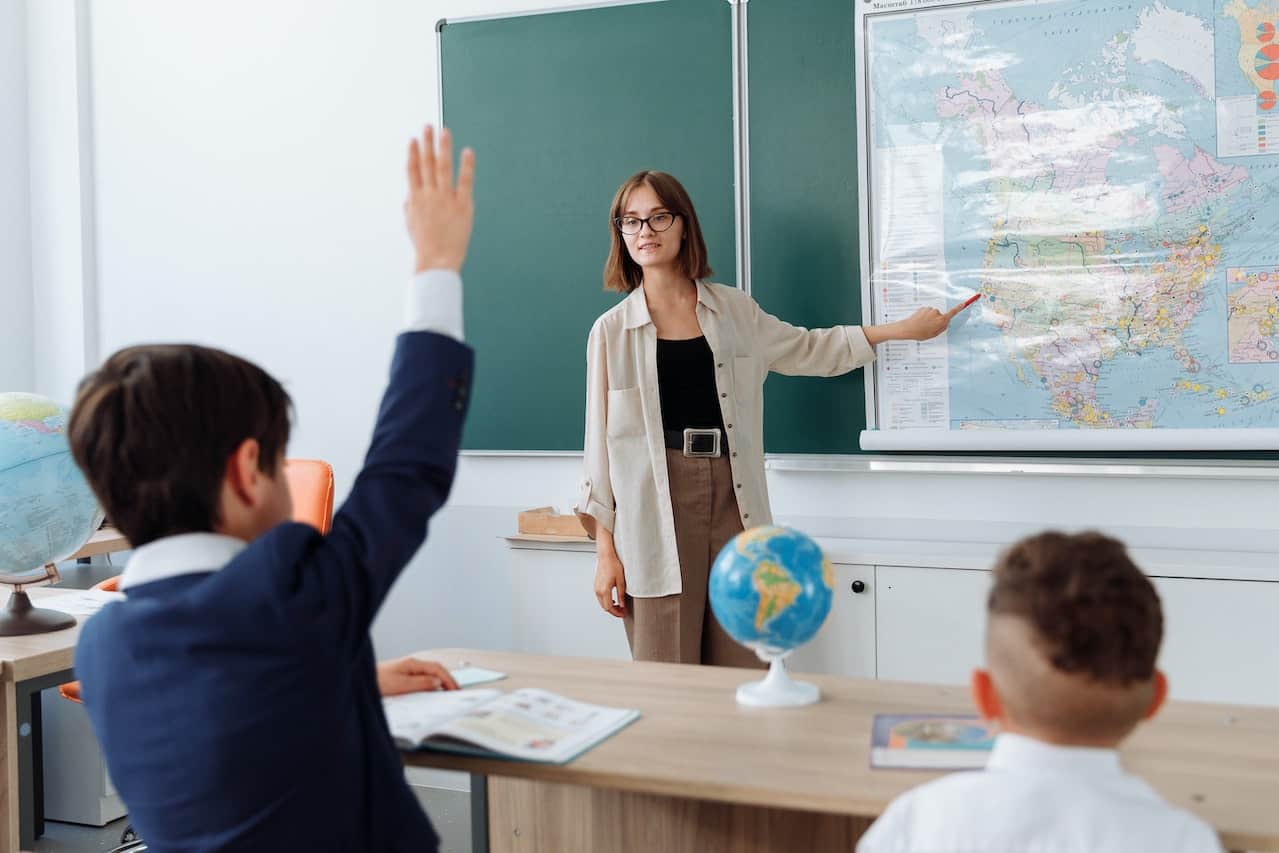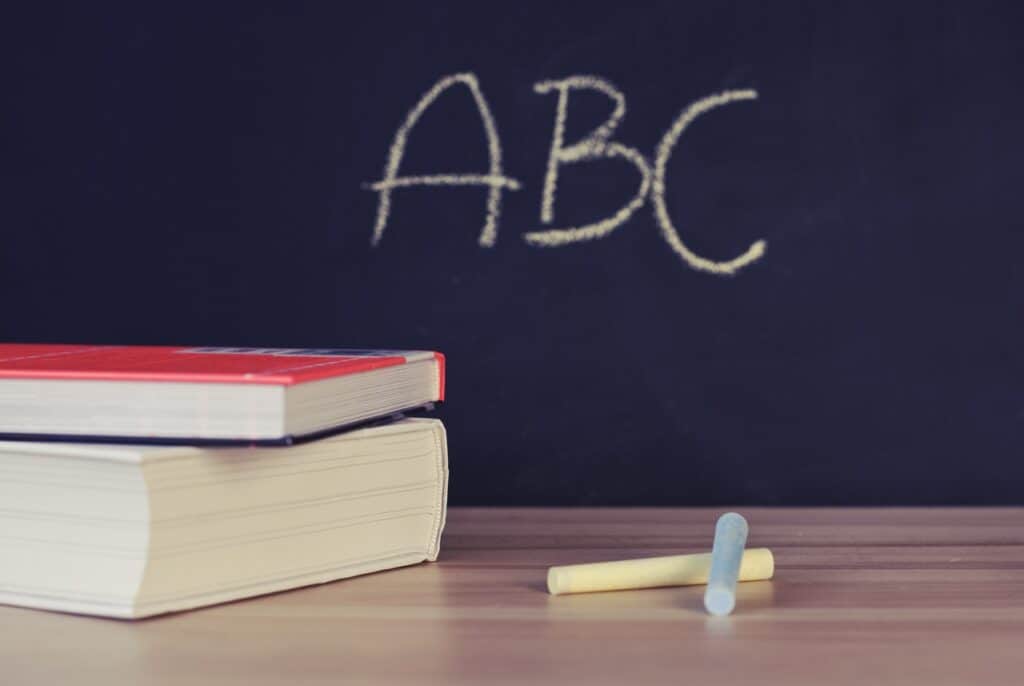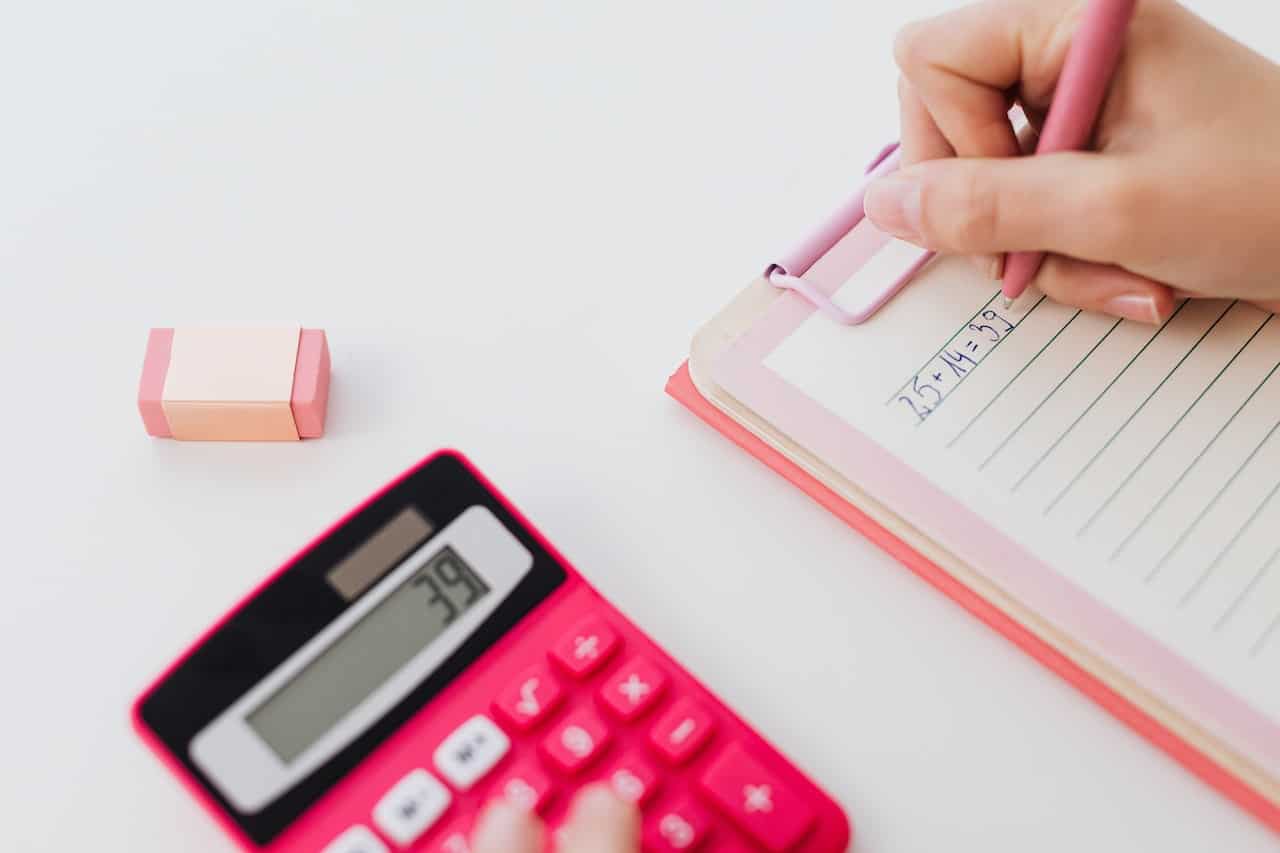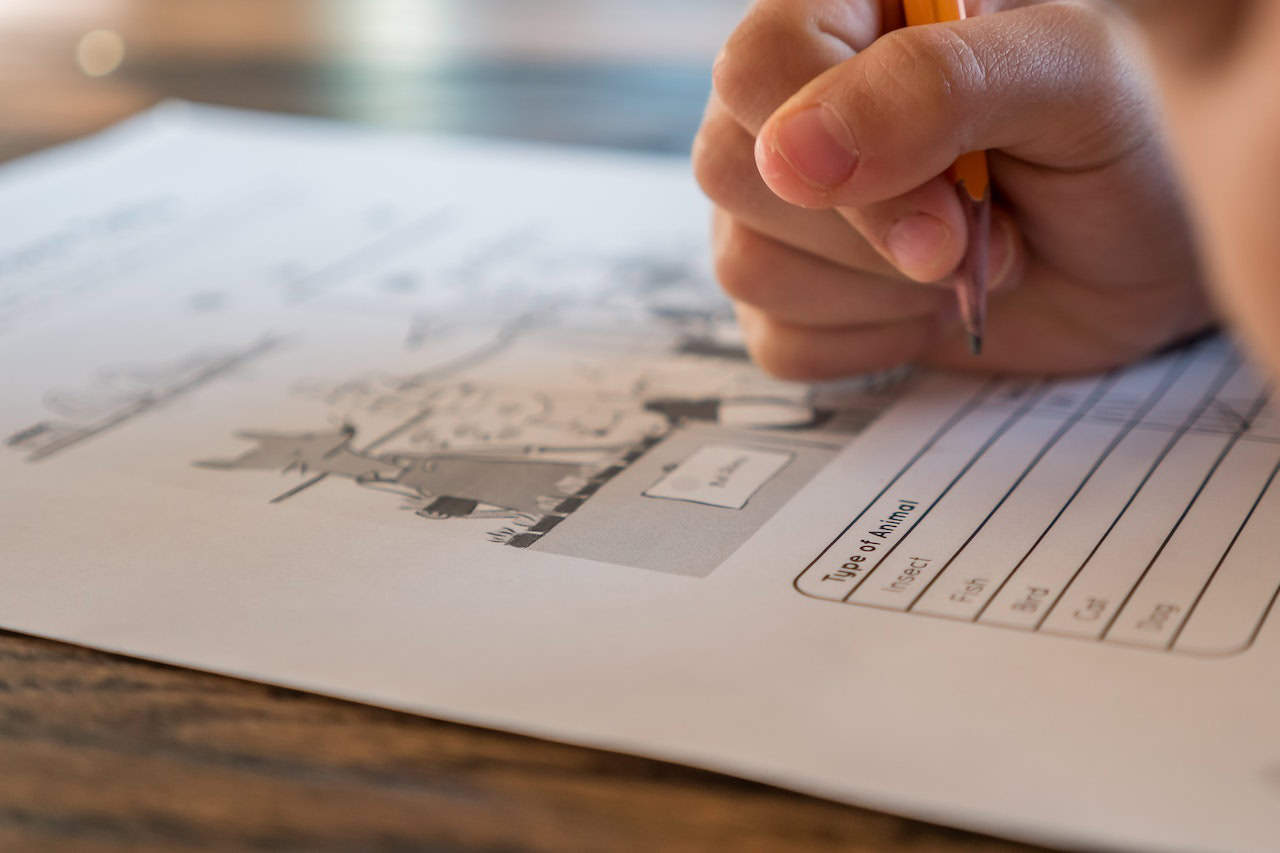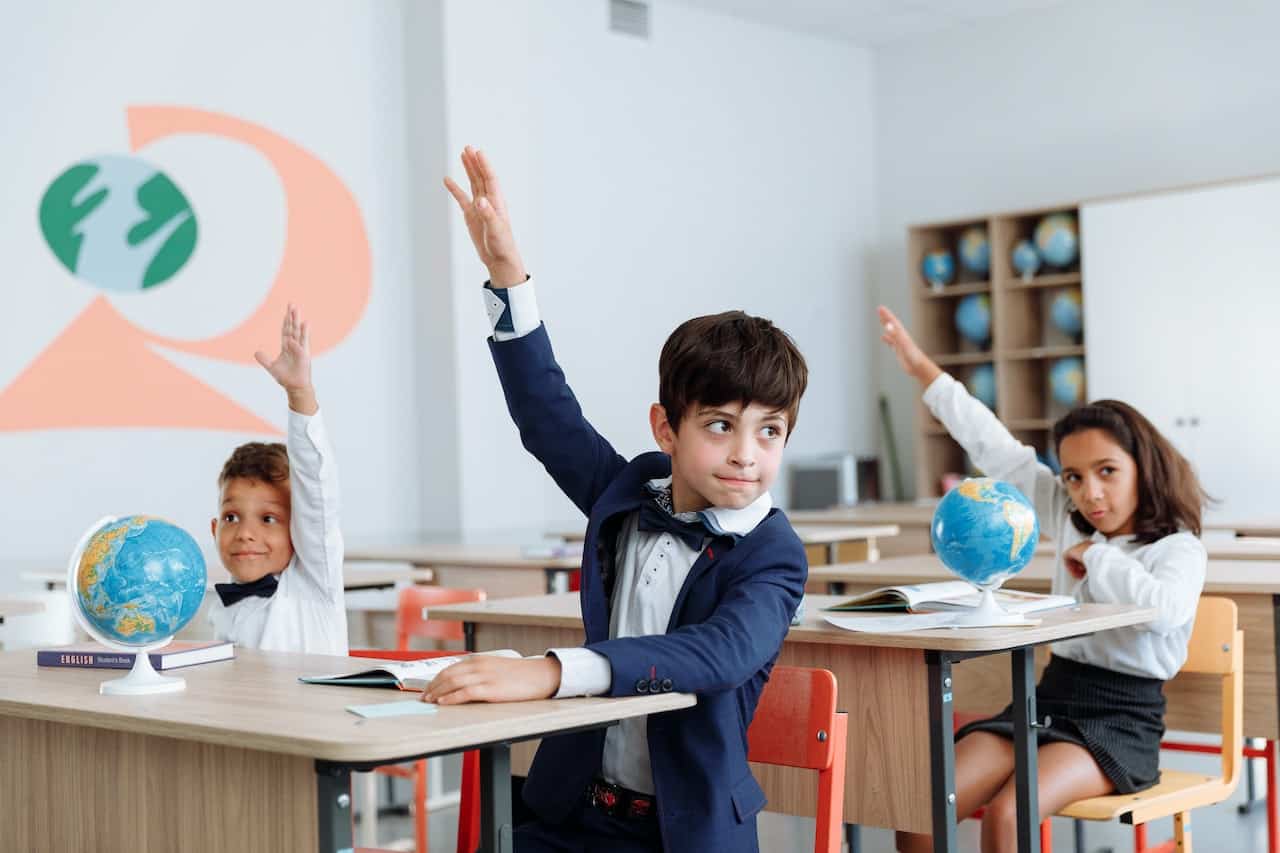Your child is starting Year 3 and you have no idea what to expect?
You aren’t alone! It can be tricky for parents to guide their children when they’re not sure where to start, so we’re here to help guide you with all the Year 3 content that your child will be learning.
We’ll be unpacking the key learning areas that your child will cover throughout their subjects, what academic standards they’re expected to achieve, and what the Year 3 NAPLAN assessments will look like.
So, what are you waiting for? Let’s dive in!
Overview of Year 3 Curriculum
Year 3 English
Year 3 Maths
Science
Humanities and Social Sciences
Year 3 NAPLAN
Overview of Year 3 Curriculum
Throughout Year 3, your child will work on developing their knowledge, understanding and skills through 8 learning areas. These 8 learning areas are:
- English
- Mathematics
- Science
- Humanities and Social Sciences
- The Arts
- Technologies
- Health and Physical Education
- Languages
We will be going through a few of these subjects in more detail. English and Maths makes up a major focus of the Year 3 curriculum, with literacy and numeracy prioritised are key learning areas ahead of the Year 3 NAPLAN exam.
As children build their independence, you can expect to see improvements in their communication and problem-solving abilities as they become more involved and interactive learners.
Starting early is KEY to academic success for your child later on in life. Set them up for success with personalised tutoring support! Keen to get started? Check out the K-12 tutoring help we can provide in Bondi Junction, Parramatta and all across Sydney!
Year 3 English
Australia’s Year 3 English Curriculum consists of three main learning areas:
- Language
- Literature
- Literacy
English makes up a major component of your child’s learning, helping to develop their knowledge and skills in listening, reading, speaking, writing, spelling and creating.
Language
The Language learning area covers a whole range of topics related to teaching language in a variety of forms for different purposes.
With over 12 topics, teachers will guide your child about how to use evaluative language, punctuation, vocabulary, text structure, visual language, and much more.
Year 3 Spelling
In particular, spelling forms a significant part of the Language area, with children learning how to use letter-sound relationships to spell words, recognise high frequency words including some homophones, and use common prefixes and suffixes.
To help get your child working on their spelling skills, you can download printable Year 3 spelling worksheets here!
Literature
Literature focusses on guiding students on how to identify, respond, examine, and create literature. Your child will undertake topics that focus on the cultural context of texts, features of literary texts, evaluation criteria, literary devices, and creating imaginative texts.
If you’re looking for a recommended reading list for Year 3 students, we’ve created a handy guide for you here!
Literacy
Along with Literature, Literacy is another expansive learning area that works on developing your child’s reading and writing skills in not only English but across all learning areas.
Among the 11 topics that your child will be learning, a few of the key teaching areas include listening and speaking, oral presentations, reading processes, comprehension strategies, editing and creating texts.
By the end of Year 3 English, your child will be well on their way to improving their essential knowledge and skills of reading, writing and listening. A few of the milestones your child is expected to achieve by the end of their Year 3 English include:
- Understanding how language features, images and vocabulary choices are used for different effects
- Reading texts that contain varied sentence structures, a range of punctuation conventions, and images that provide extra information
- Creating a range of texts for familiar and unfamiliar audiences
- Using letter-sound relationships including consonant and vowel clusters and high-frequency words to spell words accurately
Year 3 Maths
Australia’s Year 3 Mathematics Curriculum involves three main learning areas:
- Number and Algebra
- Measurement and Geometry
- Literacy
The proficiency strands of understanding, fluency, problem solving, and reasoning set out actions that students can engage in when learning and applying mathematical content. This includes actions like representing unit fractions, using familiar metric units to order and compare objects, interpreting maps and communicating positions, and comparing angles and creating and interpreting variations in data.
In Number and Algebra, your child will be learning about number and place value, fractions and decimals, money and financial mathematics, and patterns and algebra.
In Measurement and Geometry, learning will be focused on units of measurement, shape and location and transformation.
In Statistics and Probability, teachers will educate your child about how to conduct chance experiments and use data representation and interpretation.
By the end of Year 3 Mathematics, your child will have extended their understanding of numbers, patterns and relationships, measurement and geometry, and statistics. A few of the milestones your child is expected to achieve by the end of their Year 3 Mathematics include:
- Representing money values in various ways
- Counting to and from 10,000
- Classifying numbers as either odd or even
- Using metric units for length, mass and capacity
- Conducting simple data investigations for categorical variables.
Science
Australia’s Year 3 Science Curriculum centres on three main learning areas:
- Science Understanding
- Science as a Human Endeavour
- Science Inquiry Skills
Under Science Understanding, your child will explore a range of scientific areas that fall under topics of biology, chemistry, earth and space, and physics.
Science as a Human Endeavour is a learning area undertaken during Year 3 and Year 4 that informs children about the nature and development of science, as well as its use and influence in society.
Spanning from Year 3 to Year 4, Science Inquiry Skills is a learning area that teaches students the importance of questioning and predicting, planning and conducting, processing and analysing data and information, evaluating, and communicating scientific ideas and findings.
By the end of Year 3 Science, your child will have broadened their understanding of different scientific areas and recognised how to investigate scientifically and systematically. A few of the milestones your child is expected to achieve by the end of their Year 3 Mathematics include:
- Grouping living things based on observable features and distinguishing them from non-living things
- Identifying questions and making predictions about scientific investigations
- Using diagrams and other representations to communicate their ideas
Humanities and Social Sciences
Australia’s Year 3 Humanities and Social Sciences Curriculum features two main learning areas:
- Knowledge and Understanding
- Inquiry and Skills
Knowledge and Understanding covers the topics of history, geography and civics and citizenship.
History and geography share a strong thread about Aboriginal and Torres Strait Islander Peoples and the diverse characteristics of Australia through cultural celebrations and demographic characteristics. Civics and citizenship will teach your child about democracy, rules, and community participation.
Similar to Science Inquiry Skills, Inquiry and Skills is a learning area across Year 3 and Year 4 that focusses on methodical investigation by teaching students how to use questioning, research, analysis, evaluation and reflection, and communication to present ideas and findings.
By the end of Year 3 Humanities and Social Sciences, your child will have grown their knowledge about community and developed a wider understanding of the world, its places, people and systems. A few of the milestones your child is expected to achieve by the end of their Year 3 Humanities and Social Sciences include:
- Describing diverse and similar characteristics of different places at the local scale
- Explaining the role of rules in their community and the importance of making decisions democratically
- Drawing simple conclusions and sharing their views on an issue
- Communicating their ideas, findings and conclusions in oral, visual and written forms using simple discipline-specific terms.
Year 3 NAPLAN
To put these key learning areas to the test, your child will sit their first NAPLAN exams during Year 3.
The NAPLAN is a series of assessments that measures how your child is progressing through Year 3 and helps to determine areas for educational improvement. There will be three tests:
- Reading & Writing
- Language Conventions
- Numeracy
Personalised Year 3 NAPLAN Tutoring can help your child feel confident walking into their first official exams!
If you’re looking for a breakdown of what you child can expect from each of these exams, you can check out our handy guide to the Year 3 NAPLAN here!
Looking for some extra help for your child in Year 3?
We have an incredible team of tutors and mentors!
We offer tutoring and mentoring for students in Years K-12 in a variety of subjects, with personalised lessons conducted one-on-one in your home, online or at one of our state of the art campuses in Hornsby or the Hills! We have a awesome Year 3 tutoring team Sydney-wide, including award-winning tutoring in Hurstville!
We offer one-on-one primary tutoring in Brisbane! Get paired with an awesome tutor today.
We’ve supported over 8,000 students over the last 11 years, and on average our students score mark improvements of over 20%!
To find out more and get started with an inspirational tutor and mentor, get in touch today or give us a ring on 1300 267 888!
Ashley Sullivan is a Content Writer for Art of Smart Education and is currently undertaking a double degree in Communications (Journalism) and a Bachelor of Laws at UTS. Ashley is an editor for UTS Vertigo. She is a film, fashion, and fiction enthusiast who enjoys learning about philosophy, psychology, and unsolved mysteries in her spare time.

